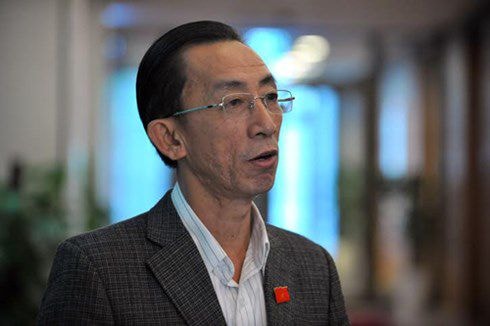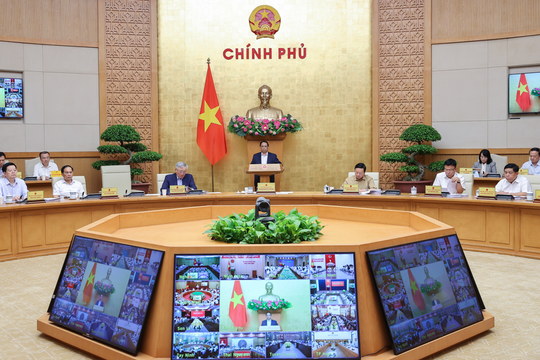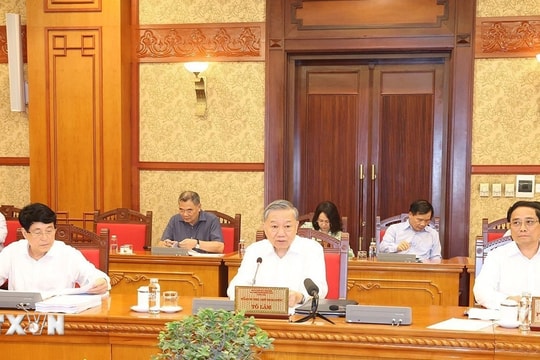The National Assembly spent two days discussing the socio-economic development plan.
One issue that National Assembly delegates are interested in is the issuance of government bonds to the international market.
According to the program, early next week, the National Assembly will spend 2 working days in the hall to discuss the results of the implementation of the socio-economic development plan, the implementation of the state budget in 2015, the socio-economic development plan and the central budget allocation plan in 2016. The National Assembly will also discuss the issuance of government bonds to the international market. This is the content that is attracting the attention of National Assembly deputies and voters nationwide.
This year's growth is estimated at 6.5%, the highest growth rate in the past 5 years, inflation is controlled at a low level, and exports maintain growth momentum. According to delegates, these are the highlights in the Government's report on the results of implementing the 2015 socio-economic development plan.
 |
| Delegate Tran Hoang Ngan (Photo: Hoang Long) |
Delegate Tran Hoang Ngan, Ho Chi Minh City delegation, highly appreciated the Government's management because in the context of the world crude oil price having dropped sharply from 100 USD/barrel to only about 50 USD/barrel, causing a loss of crude oil revenue of up to 32,000 billion VND, we still continued to balance the state budget and keep the state budget deficit at 5% of GDP.
According to delegate Tran Hoang Ngan, these positive results are due to the fact that our restructuring process has achieved certain results, especially the restructuring of public investment, the restructuring of the commercial banking system and credit institutions. We have reduced bad debt and thereby increased the circulation of money and credit, the outstanding credit balance has increased again, thus creating increased investment capital. Thanks to that, it has contributed to economic growth exceeding the set plan.
Deeply participating in international economic agreements, many delegates assessed that this has opened up both opportunities and challenges for domestic enterprises. To proactively welcome opportunities and overcome challenges, delegate Do Van Ve of Thai Binh delegation said that enterprises must proactively prepare themselves with understanding, improve management models, pay attention to labor productivity and product quality. Regarding macro policies, Mr. Do Van Ve said that our country has strengths in agriculture, has potential for enterprises to invest in agricultural production, however, to promote this advantage, there needs to be active support from the state.
"There must be State support for investment in agricultural, farmer and rural development to create appropriate policy mechanisms. Revise a number of related bills to create the most favorable conditions for farmers and the business community. At the macro level, there must be a real support mechanism to develop our agricultural sector no less than other countries."
One issue that many delegates and voters are concerned about is revenue and expenditure and budget discipline. Delegate Bui Duc Thu, Lai Chau delegation, said that in 2016, the pressure to spend on development investment and debt repayment is very high. If the proportion of investment expenditure is not increased, growth and development will be limited. Therefore, it is necessary to restructure expenditures in the direction of reducing the proportion of regular expenditures in total budget expenditures.
According to Mr. Bui Duc Thu, the National Assembly Resolution from 2014 on budget management in 2015 required cutting unnecessary and not really urgent expenditures, so next year, this Resolution needs to continue to be implemented more drastically and thoroughly. Regarding the issuance of Government bonds to the international market, delegate Bui Duc Thu said that in the current context, it is necessary to allow the Government to issue bonds to the international market to implement debt restructuring with short-term domestic loans.
 |
| National Assembly delegates attending the 10th session of the 13th National Assembly |
Delegate Bui Duc Thu affirmed that borrowing from abroad to mobilize more resources for the economy has the advantage of being long-term and having a cheaper interest rate than borrowing from domestic sources. He said that it does not increase public debt and debt repayment obligations. "There are opinions that borrowing 3 billion USD increases public debt, but I think that according to the Government's plan, borrowing 3 billion USD from abroad to issue bonds on the international market is to roll over short-term domestic loans. That is, to pay short-term debts, essentially rolling over debt, so it does not increase public debt," said Delegate Bui Duc Thu.
Commenting on solutions for the next 5 years, some delegates said that to realize the 5-year plan goals set by the Government, it is necessary to have synchronous coordination between sectors and levels from the central to local levels. Vietnam's development investment needs are very large. Issuing bonds to the international market is necessary. The important issue is how to use capital sources to promote efficiency and increase revenue./.
According to VOV


.jpg)

